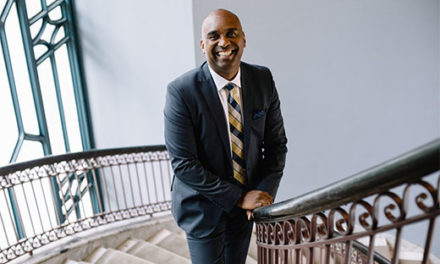Student leaders and members of the Student Task Force on Diversity called for recommendations on improving inclusion and an action plan to address issues of diversity on Emory’s campus Monday evening.
The event, titled “A Community Responds: Building a Community Together,” was sparked by offensive content on the Dooley Show and released on YouTube last semester. According to Assistant Dean for Campus life and Director of the Office of Student Leadership and Service (OSLS) Matt Garrett, the purpose of the forum was to assemble a list of student-driven recommendations for campus life, student government and the community at large.
Monday’s forum consisted of an introduction by College seniors and task force members Bukie Adebo and Brian Fuller, followed by six breakout group discussions, an overview of each group’s ideas, and concluding remarks by Dean of Campus Life Ajay Nair.
The topics for the group discussions included brainstorming ideas for student-driven advocacy teams on racism and on broader oppressions; academic changes concerning coursework and faculty; training programs that promote inclusion for leaders of student organizations and Greek life; ways in which to report issues of bias; and recommendations to improve the inclusiveness of physical spaces at Emory.
Both students and faculty members offered recommendations during the forum. Christine Ristaino, senior lecturer in the departments of French and Italian, suggested that posters be put in every classroom reminding students and faculty of inclusive ways in which to engage with one another.
Ristaino continued to comment on the importance of University-wide faculty training programs on inclusion and diversity.
“I personally want more of that training,” she said.
She elaborated that training would create more of a safe space in the classroom in which different ideas can coexist.
Ashish Gandhi, College senior and Student Government Association (SGA) President, said that it is important to motivate professors to delve into the issue of inclusiveness, to make students feel welcome and comfortable in the classroom and approaching their professors.
A potential advocacy committee or task force should promote both awareness of social and economic inequalities and action, according to a general consensus reached during break out committees. Specifically, participants in the forum noted that an advocacy committee would address oppression through three goals: awareness of repression, training students and faculty and responding to issues of repression and privilege.
According to College senior and forum attendee Meena Vanka, an advocacy committee would consist of a diverse cross-section of the Emory Community.
“We need all types of people working together to address seemingly intangible ideas that affect people on a very real level,” Vanka said.
A task force would offer events on a regular, possibly monthly, basis that make people aware of inequalities. The task force could also expose people to issues firsthand by taking them off campus to work directly in underprivileged communities, according to the combined opinion of the committee members.
According to Nicole Blumenkehl, College senior and member of the student task force, it is important for a program to train presidents of student organizations. In particular, a presidents’ training for Greek leaders could include avoiding stereotypical themes at Greek parties.
The need for an official bias reporting system was widely noted during the forum.
“There needs to be an official bias reporting system and office where students can go in confidentiality,” said College senior Stephanie Llanes.
The office would serve as a neutral third party for bias reports and as a way for issues to be addressed. Many universities have such an office, but it is missing from Emory, according to Llanes.
Adebo said that after the forum, she would like to see concrete, detailed plans carried out. She addressed attendees in her concluding remarks.
“I hope your passion does not die out. These issues have been around for a long time – they happen over and over, so don’t let your commitment fade,” she said
At the end of the forum, Nair focused on the next steps for the Emory community. He commented that a report will be drafted with the recommendations from the forum, and real action will happen in response to the recommendations. This semester, for one, there will most likely be an external review of the climate on Emory’s campus in relation to inclusion, looking at campus life, programs and services. He was also encouraging, noting that Emory has a strong community and passionate students.
“My plan is to implement recommendations as soon as we can,” he said.
–By Elizabeth Bruml
The Emory Wheel was founded in 1919 and is currently the only independent, student-run newspaper of Emory University. The Wheel publishes weekly on Wednesdays during the academic year, except during University holidays and scheduled publication intermissions.
The Wheel is financially and editorially independent from the University. All of its content is generated by the Wheel’s more than 100 student staff members and contributing writers, and its printing costs are covered by profits from self-generated advertising sales.



